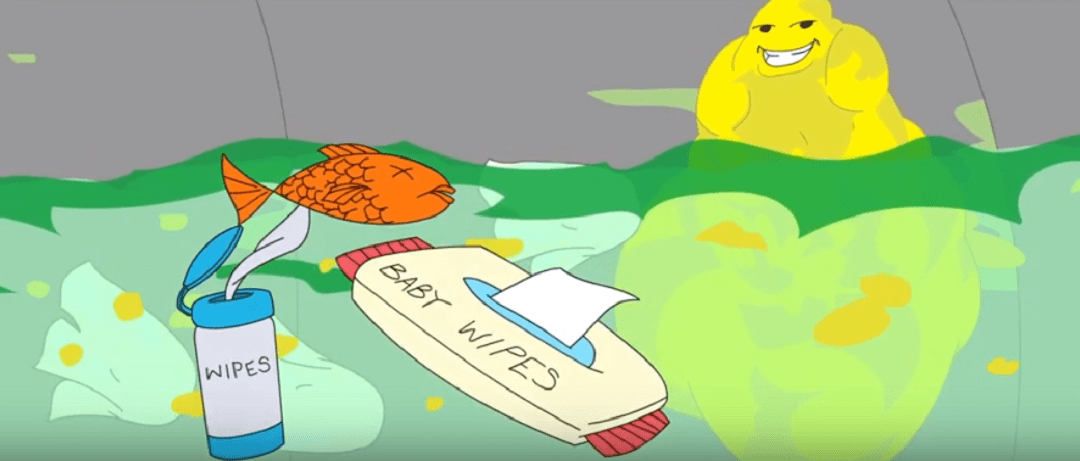
The issue of wet wipes clogging sewerage systems has been a growing issue in recent years as this grocery category has become more popular.
The Food & Grocery Council has been working on the issue since 2015 when it became aware of concerns that wet wipes, along with items such as babies’ nappies, sanitary protection, coffee grounds and kitty litter, were being flushed down toilets and blocking sewerage systems. That year, FGC partnered with Water New Zealand to form the Wet Wipes Advisory Group, which consisted of member companies from both organisations.
FGC approached the Master Plumbers Association to discuss the issue and to hear first-hand their members’ views. We were told how flushed matter can get caught on tree roots that have grown through clay pipes used in older housing, or on the joins of clay pipes. It was clear from this that a lot of non-flushable wipes – for example, cleaning wipes, make-up removal, and baby wipes – were being disposed of in this way, even though packs might say “do not flush”.
In 2017, FGC and Water NZ launched a video that promotes a ‘don’t flush’ message about what can’t go down toilets.
Entitled ‘Avoid a flood – think before you flush’, it was distributed as part of waterways brochures to schools and via social media.
FGC’s position
All FGC’s member companies are aware that if their wipes are sold as being “flushable” – that they dissolve in water after being flushed – then by law they have to be able to substantiate such claims, and we know that our members adhere to this.
Companies that make wipes have reviewed their messages on packs about usage – both flushable and non-flushable – to make sure they are as clear and informative as possible.
The plumbers told us that when non-flushable wipes are flushed down the toilet, they don’t break up in the same way toilet paper, and they get snagged on pipes and in pumps and clog sewers and cause major problems.
We need to be treating our waterways with much more care. Our animated video is designed to remind people that everything that is flushed will find its way into a wastewater treatment plant and then to oceans, rivers, or on to the land, and can cause blockages that overflow to rivers and streams.
But it’s not just wipes and other products from home. Commercial buildings, including hospitals, also contribute to the problem. A visual review of products caught in the screening process by Auckland’s Watercare revealed that of 150 items, some 91 were commercial wipes.
Working with the water industry enables the grocery industry to provide information to all parties about what the real issue is – people flushing products that should be put in the rubbish bin.
